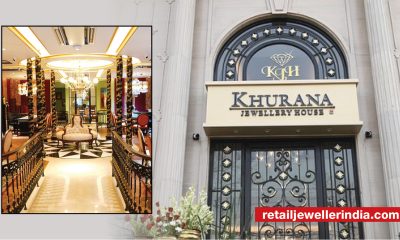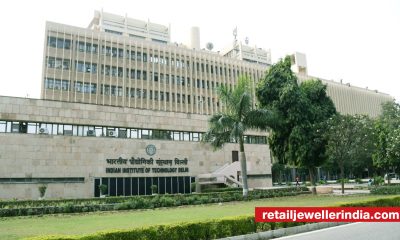Daily News
Alrosa roughs are not ‘conflict diamonds’, says India

New Delhi: Exports of rough diamonds from Russia’s state-owned Alrosa mines have resumed to India, although tensions remain high over such consignments.
The exports claim those in the industry, were started to help Indian diamond traders avoid Western sanctions imposed on Vladimir Putin-led Moscow for its invasion of Ukraine. Exports were carried out by making payments in euros through German banks.
Sources told this reporter that the exports started after a brief hiatus caused by sanctions imposed by the West following Russia’s invasion of Ukraine. Indian traders are making payments in euros through German banks to bypass the sanctions applied on Moscow. It is not easy to ignore the flow of diamonds from Alrosa, Russia’s enormous state-backed mining monopoly, to the West.
Many Western nations are seeking to shut down Russia’s diamond trade with India by calling Russian diamonds conflict diamonds, or blood diamonds. Critics such as Cristina Villegas, director of the Mines to Markets program at Pact, a development NGO, was quoted by the India-phobic London-based Guardian as saying: “These are objectively conflict diamonds: they’re funding an armed conflict against a peaceful neighbour, by a state actor.” Villegas was silent about the flood of cash going to Russia by oil and gas purchases from European countries.
Experts say Russian diamonds do not fit the narrowest industry definition of “conflict diamonds”, which refers to those used to fund rebel groups, but given her objective of blocking the trade, it was no surprise that Villegas was quoted by the daily saying Russian diamonds clearly fit the spirit of the term.
“The situation with Russian diamonds is that they really became conflict diamonds overnight,” she told the daily. “These things take time to settle on new definitions. But it’s hard not to presume it’s because much of the industry is hoping that this goes away or it’s forgotten,” she told the Guardian.
The demand for roughs from Alrosa to India has been on the downside in recent times after exports stopped due to sanctions imposed by the West. But the White House has said India taking up Russia’s offer of discounted crude oil would not be a violation of American sanctions.
Russian mines are important for India and the world. Russia is the world’s largest producer of diamonds, accounting for about 30% of the global market. But now, as the war drags on, many are wondering whether to keep buying or selling these diamonds. Jewellers in India and also across the world depend on Russia’s state-controlled diamond sector for supply. Hundreds of thousands of jobs globally would be at risk if Villegas has her way.
So let’s take a realistic look at the Russian supplies.
Almost 99% of Russian diamonds come from Alrosa. That’s the biggest supply from Russia. Now, one-third of Alrosa’s shareholding is directly owned by the Russian state, and another third by regional governments—the Russian republic of Yakutia and its administrations, where many mines are located.
Western media coverage, which has become even more Russophobic since the February 24 invasion of Ukraine, has reported that Sergei Ivanov, Alrosa’s chief executive, was specifically targeted by US sanctions. Ivanov’s father is Sergei Borisovich Ivanov, reportedly one of Putin’s closest allies. This is not all. Ivanov was formerly a Russian minister of defence, KGB colonel general and Putin’s chief of staff. So the links are very, very strong. Should sanctions on an individual be used to cancel the jobs directly and indirectly made through the trade of millions of individuals? Clearly, those active in the Ban Russian Diamonds brigade believe so, not that they are interested in saying where newly unemployed diamond industry workers would get re-employed.
Alrosa is a significant earner for its shareholders. Alrosa reported sales of $4.16bn in 2021, resulting in a net profit of $943m. Apart from Alrosa, there is a huge diamond stockpile at Gokhran which the Russian state has often used to regulate the diamond market, buying up excess and selling during shortages. It is common knowledge that the practice of purchasing diamonds in order to manage the pricing has continued for over three decades.
For the records, Gokhran holds periodic auctions of gemstones from state stockpiles, with six auctions in the first half of last year. Diamond.net reported that revenues from one sale touched $139.2m. No one in the West knows how much stockpile Gokhran has. And it is common knowledge that Moscow would start selling Gokhran diamonds to drum up revenues. China would be the gainer, should the West succeed in forcing India to stop buying rough diamonds from Russia. With the White House wisely not damaging its relations with India by putting up barriers, New Delhi does not have a commercial problem but there are many NGOs who feel India should have waited and watched.
Washington has issued sanctions on Russian diamonds but no one knows how to halt the exports. India has started importing from Russia, ostensibly because the vast majority of Russian stones are exported rough. It will be cut and polished in India, which processes about 90% of the world’s rough diamonds.
For the world, and as per the US Customs rulings, polished diamonds can be imported as an Indian product, not a Russian one. “The sanctions—unless they deepen—are not going to affect normal business,” Martin Rapaport, a high-profile figure in the global diamond market and founder of RapNet, the world’s largest online diamond trading network, was quoted by the Western media. Rapaport was making a presentation to the industry. “The flow of diamonds from Russia to India to America will continue unabated,” Rapaport told the Guardian. “The sanctions are essentially very ineffective. They don’t do anything. This is not going to stop Russian diamonds.”
Indian officials have said that business will continue as normal. Colin Shah, chairman of the Indian government’s Gem and Jewellery Export Promotion Council, said in a statement that Alrosa had written to reassure them that sanctions would not stop the flow. “Alrosa has assured that they are running their business as usual. They will be fulfilling all their obligations to their clients in any part of the world,” Shah said.
The diamond world is in a tizzy because it will not be easy to cut off Alrosa the way that Congo or Zimbabwe was. Alrosa is a key source for many of the world’s largest jewellers. Alrosa’s clients include Signet Jewellers, the world’s largest retailer of diamond jewellery, New York firm Leo Schachter, and iconic luxury brand Tiffany & Co.
However, a top Alrosa customer, Signet Jewellers, has made it clear it would stop sourcing Russian diamonds. Brilliant Earth, a smaller firm branded on responsible sourcing, said last week it would remove Russian diamonds from the sale.
In a memo to suppliers, Signet said it had “halted all trade in precious metals and diamonds that originate from such sanctioned Russian sources, and you are therefore requested to stop supplying the same to Signet even though the country(s) in which you operate may not have imposed sanctions on Russian precious metals and diamonds”.
Market observers say a blanket ban on Alrosa would poison India-US ties by severely hitting the Indian cutting industry, for starters. The Kimberley Process (KP), set up to keep conflict-connected diamonds out of the supply chain, has issued no public warnings on Russian supply. An NGO seeking a total ban, the Kimberley Process Civil Society Coalition, has called on the KP to “establish if and which measures are required to ensure that diamonds produced in Russia or by Alrosa do not contribute to financing this conflict”. On whose behalf is not clear.
Alrosa has resigned from the Responsible Jewellery Council, one of the industry’s most prominent bodies which aim to set industry standards and promote trust in the global jewellery and watch industry. Given the strong stand of the Narendra Modi government on the need to strengthen the Quad as a force defending freedom in the Indo-Pacific, experts say it is unlikely that President Joe Biden would anger Washington’s most important partner in the Indo-Pacific by instituting sanctions against India. The NGOs calling for such sanctions are silent at the prospect of the diamond trade shifting from India to China as a consequence of their advocacy.
Courtesy: The Sunday Guardian

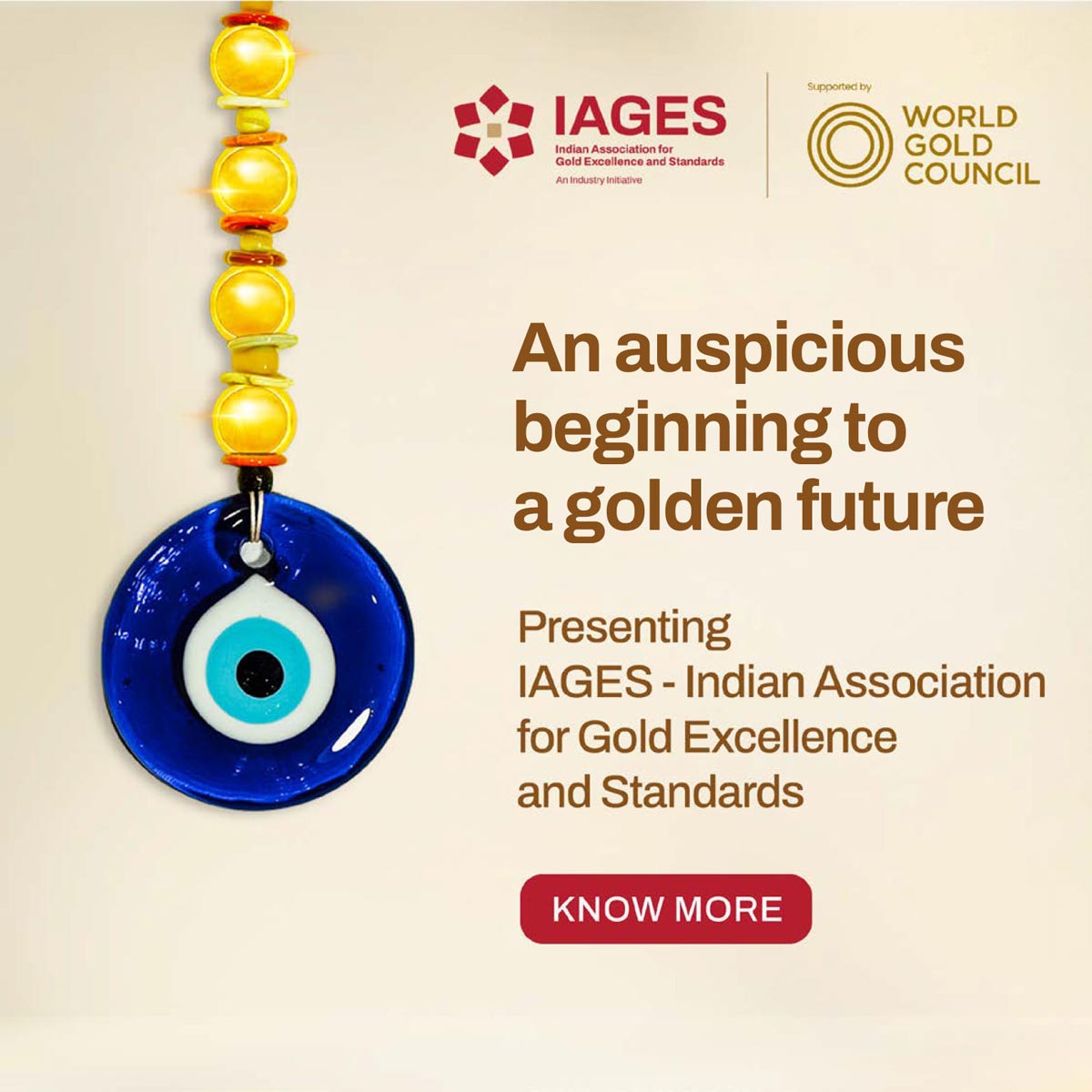
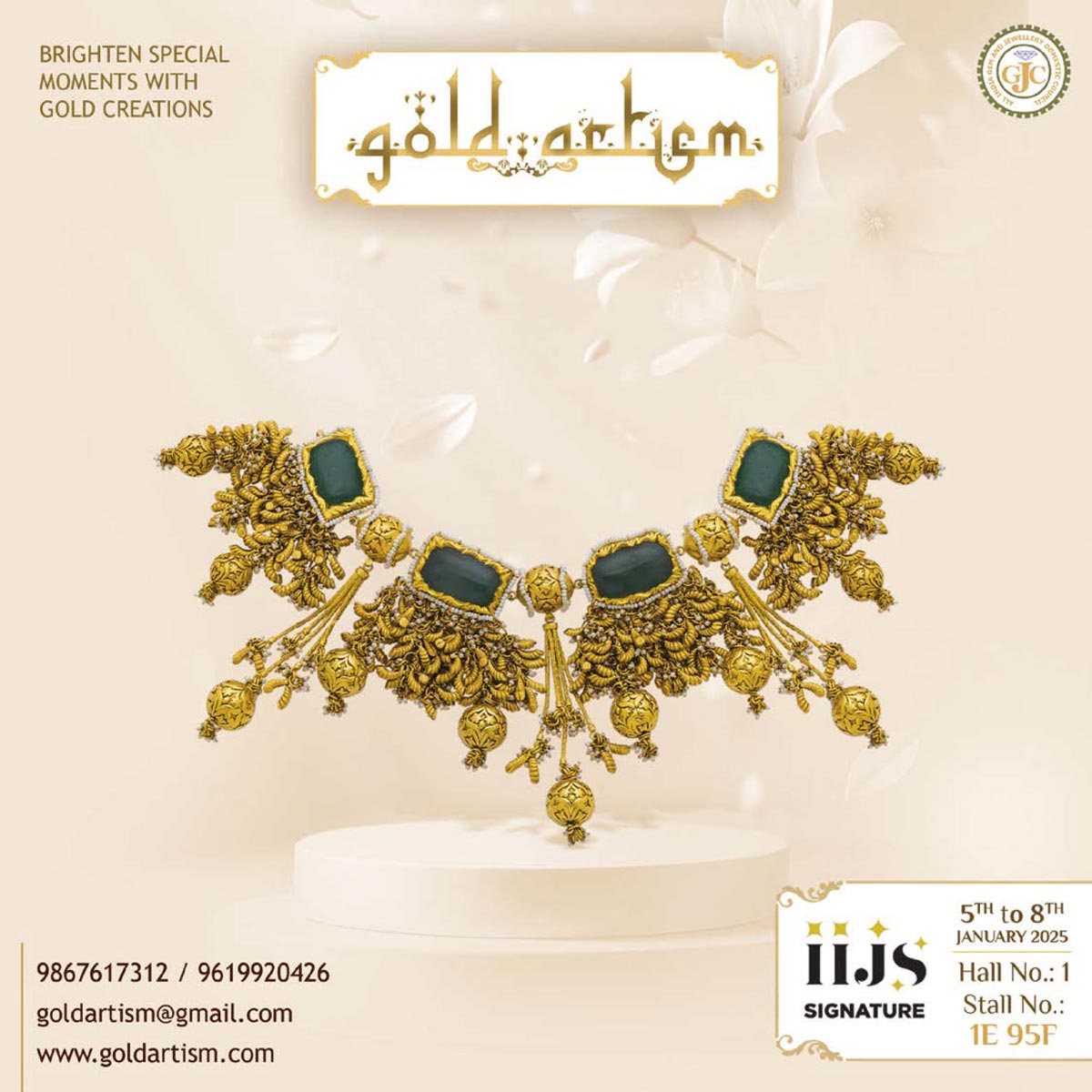
-
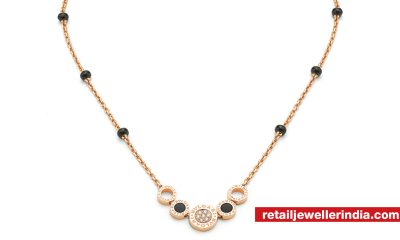
 Daily News2 months ago
Daily News2 months agoBvlgari adds designs to its pathbreaking mangalsutra collection ahead of wedding season
-

 Daily News2 months ago
Daily News2 months agoTrent, a TATA subsidiary, launches lab-grown diamond brand ‘Pome,’ shares surge 7.67%
-

 Daily News2 weeks ago
Daily News2 weeks agoMalabar Gold & Diamonds launches ‘Heritage Show’ in Mangalore, featuring jewellery inspired by Maharanis
-

 Daily News3 weeks ago
Daily News3 weeks agoSavji Dholakia’s visionary water conservation project ‘Bharatmata Sarovar’ reinforces commitment to sustainability






